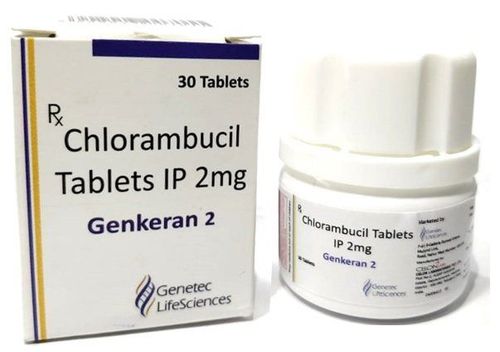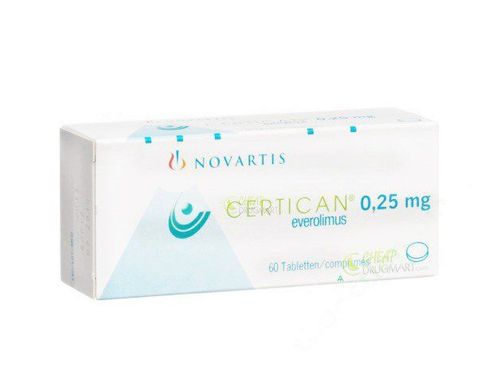This is an automatically translated article.
Afinitor belongs to a group of prescription drugs used in the treatment of certain cancers, tumors, and epilepsy. The drug is made in the form of tablets and the composition of the drug contains everolimus. Afinitor works by inhibiting rapamycin - mTOR - targeted therapy that works and attacks cancer cells.
1. Mechanism of action of the drug Afinitor
What does Afinitor do? The everolimus component of Afinitor is known to be a major inhibitor of proliferation, preventing allograft rejection in animal models. This compound exerts immunosuppressive effects by inhibiting the proliferation of T cells during antigenic activation. At that time, it will expand further and is controlled by T-cell-specific interleukins. Everolimus inhibits sugars mainly inside cells, causing cell proliferation to form due to the binding of factors. T-cell growth nests into the receptors. The breakdown of sugars by everolimus causes the cells to stop at the G1 stage of the next cycle. The effects of everolimus are not limited to T cells but are capable of inhibiting proliferation of hematopoietic and non-hematopoietic cells including vascular smooth muscle cells that stimulate factors growth. The proliferation of smooth muscle cells in the blood vessels will stimulate the body's growth factor causing endothelial cell damage. Simultaneously, neovascular scintigraphy plays a major role in the pathogenesis of chronic rejection.
Afinitor is absorbed at peak concentrations between 1 and 2 hours after dosing. And everolimus blood concentrations are dose proportional at 0.25 to 15mg. The bioavailability of Afinitor is relative to the level of 0.9, based on the ratio of the area under the concentration curve. Afinitor reduces plasma concentration and AUC when administered with a high-fat meal by 60% and 16%, respectively. To limit this situation, patients should use when there is no food.
The ratio of everolimus to concentration-dependent plasma concentrations from 5 to 5000 ng/ml is 17 to 73%. The binding of Afinitor to plasma proteins in healthy subjects is approximately 74%. The volume of distribution of the drug is related to the end-stage of renal transplant patients in the maintenance phase. Everolimus is a substrate and the major routes of metabolism of this compound identified in humans are mono hydroxylation and odealkylation. The main metabolite is formed through hydrolysis of the cyclic lactone. And Everolimus helps blood circulation in the body. Following administration of a single radiolabelled dose of Afinitor in organ transplant patients receiving cyclosporin and most of the radioactivity detected in the fraction of 80%, a small amount of about 5% was found in water. urine.
The pharmacokinetics of Afinitor are similar in both kidney and heart transplant patients. Steady state on dosing is achieved after daily application with accumulation of blood concentrations 2 to 3 times higher than that observed after the first dose. The time to reach peak plasma concentration can be from 1 to 2 hours after administration of Afinitor. Drug concentrations were preserved and remained stable over time during the first year of organ transplantation.
2. Indications and contraindications for the use of Afinitor
Afinitor is indicated for the prophylaxis of organ rejection in elderly patients at low to moderate immunological risk. And these patients are undergoing kidney or heart transplants of the same species. Afinitor can be used in combination with cyclosporin microemulsion and corticosteroids. In addition, Afinitor is also used in combination with exemestane for postmenopausal women with advanced hormone receptor + and HER2 - breast cancer. Post-relapse or progression without visceral metastases or have been treated with a non-steroidal aromatase inhibitor.
Adult patients with advanced stage of neuroendocrine tumors of good or moderate pancreatic origin, who have not undergone surgery or have metastasized, are also indicated to use Afinitor
Carcinoma Advanced renal cell disease with disease status during or after treatment with VEGF-targeting drugs is also indicated for the use of Afinitor.
However, Afinitor is also contraindicated in subjects who are hypersensitive to the ingredients of the drug.
3. Dosage and how to use Afinitor
The drug is used in adults as 10mg tablets orally once a day and is continued until clinical benefit is observed or unacceptable toxicity occurs. In some cases of severe or unacceptable adverse drug reactions with Afinitor, a temporary dose reduction of 50% may be indicated. In patients with moderate to severe hepatic impairment, a specific dose adjustment is required.
Afinitor can be taken on an empty or full stomach and should be taken at the same time of day. When using the drug, the patient should swallow the tablet whole with a glass of water, and note that it should not be chewed or crushed before taking.
In case the patient accidentally takes Afinitor drug in excess of the prescribed amount and has some signs of unwanted side effects, it is necessary to take the patient to the nearest emergency room for treatment. timely support to help patients overcome dangerous situations.
If the patient misses a dose of Afinitor while taking Afinitor, the missed dose can be used as soon as he remembers. However, if the interval between the missed dose and the next dose is close, the patient can skip the missed dose and take the next dose of Afeditab. Patients should also be careful not to double the dose because it can cause an overdose of Afeditab and unwanted side effects that affect the patient's condition.
4. Unwanted side effects of the drug Afinitor
Afinitor may cause some unwanted side effects during treatment. Therefore, patients and treating doctors should carefully analyze the benefits of using the drug. Undesirable side effects of Afinitor may include: mouth ulcers, noninfectious pneumonia, infection, or hypersensitivity reactions, increased blood sugar, fatigue or possibly diarrhea, taste disturbances, nosebleeds,.... For patients with renal failure, it is necessary to monitor the function of the kidneys. In addition, Afinitor may cause some other side effects such as thrombocytopenia, anemia, thrombocytopenic purpura, hypercholesterolemia, hyperlipidemia,...
5. Drug interactions of Afinitor
Afinitor can interact with strong inhibitors, live vaccines, grapefruit or grapefruit juice, star fruit, oranges or food that can affect how the medicine works when used together. Moderate inhibitors, strong reactants, anticonvulsants, antivirals... also interact with Afinitor drugs.
Some studies by the Food and Drug Administration have shown that the drug Afinitor has a D level of interaction, and there is evidence related to pregnant women and fetuses. Therefore, the case of drug use Afinitor for subjects needs to be approved for critical cases or need to be carefully evaluated for the effects of the drug to choose the best treatment effect. Therefore, Afinitor should be used only as prescribed by a doctor.
Please dial HOTLINE for more information or register for an appointment HERE. Download MyVinmec app to make appointments faster and to manage your bookings easily.













